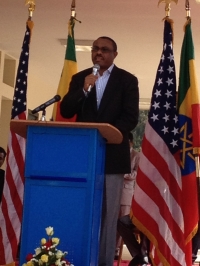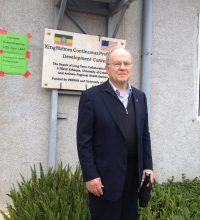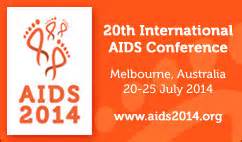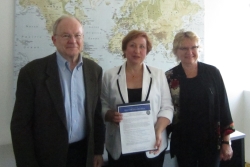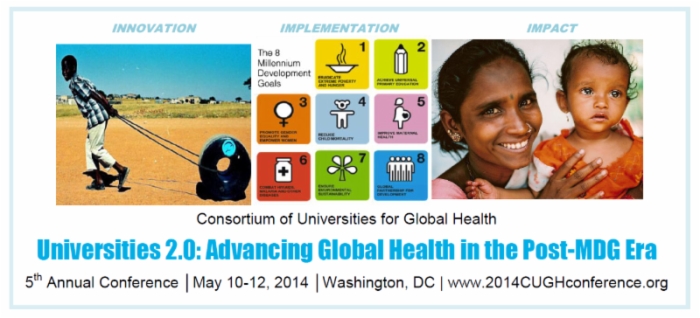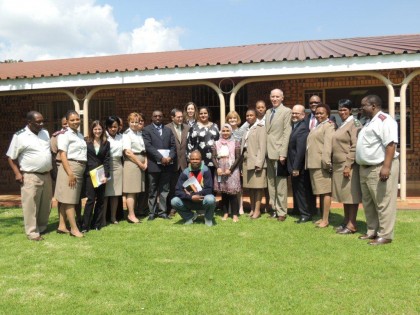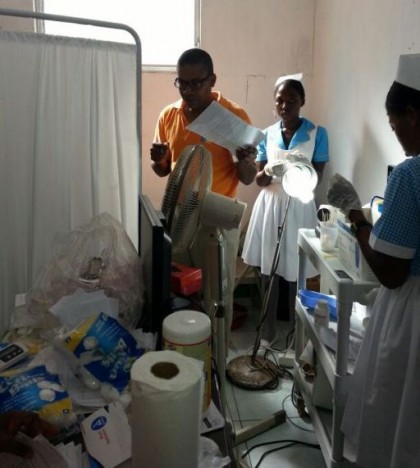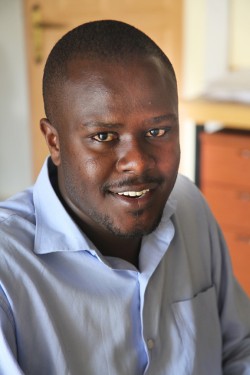Earlier this month, a distinguished group from the University of Washington’s International Training and Education Center for Health (I-TECH) and Department of Global Health (DGH) visited Addis Ababa and Gondar, Ethiopia, for several days of discussion, workshops, events, and celebration — including the University of Gondar’s 60th anniversary Diamond Jubilee and the inauguration of the University of Gondar Comprehensive Outpatient Center.
Workshops and discussion at the I-TECH Ethiopia offices
I-TECH has had a presence in Ethiopia since 2003, and in that time, has become a guiding force in antiretroviral therapy service delivery and human resources for health, building the capacity of the Regional Health Bureaus (RHBs), universities, and health facilities; introducing innovative initiatives such as task sharing; activating effective monitoring and evaluation interventions; advocating for and implementing TB prevention programs, including MDR-TB; and building the capacity of health facilities and regional labs. The team acts in close partnership with the RHB offices of the Ministry of Health in Afar, Amhara, and Tigray and will be transitioning most of its programs to the RHBs in September 2014.
In advance of this transition, Dr. King Holmes, Chair of the DGH, and Dr. Ann Downer, I-TECH Executive Director, met with staff in Addis Ababa during a July 4 coffee ceremony. The meeting was an opportunity to say farewell to some incredibly valuable members of the I-TECH Ethiopia team who are leaving as projects are transitioned to the RHBs and discuss highlights of more than a decade of outstanding work in Ethiopia.
Bryan Verity, I-TECH HQ Director of Human Resources, was earlier on hand to facilitate a four-day career transition series with materials adopted from the UW career center. The series was co-facilitated by Tigist Dagne, Human Resources Manager at I-TECH Ethiopia.
“We had a great level of involvement by the staff, especially during the ‘assessing personal strengths’ workshop,” said Verity. During this exercise, a staff member shared experiences, while “listeners” tracked skills/strengths that the speaker employed during the experience.
The series also covered writing curriculum vitae (CV), conducting a job search, and strengthening interview skills. In addition, Verity presented a 60-minute training on personal financial management.
“It’s been a tremendous honor to work with such a dedicated and talented group of people,” said Dr. Downer. “I am so pleased that King and I had the opportunity to express our gratitude in person for the fine work this team has done to combat HIV/AIDS in Ethiopia. Everywhere we went in Ethiopia we heard about the positive reputation and valued contributions of our I-TECH Ethiopia team.”
Much to celebrate at the University of Gondar
Speaking alongside Ethiopian Prime Minister Hailemariam Desalegn and U.S. Ambassador to Ethiopia Patricia Haslach, Dr. Holmes delivered a keynote address at the inauguration of the Gondar Comprehensive Outpatient Center on July 6. The launch was bookended by the university’s graduation ceremony and its 60th anniversary Diamond Jubilee conference.
The center was a collaborative effort of I-TECH, UW, the University of Gondar, and the U.S. President’s Emergency Plan for AIDS Relief (PEPFAR) representatives in Ethiopia: the U.S. Centers for Disease Control and Prevention (CDC) and the Health Resource and Services Administration (HRSA).
The construction of this center was critical to address the significant burden and impact of disease in Ethiopia to comply with the Ethiopian Ministry of Health’s (MOH) mandate to increase the number of health care workers and to support the goal of PEPFAR to improve delivery of acute and preventive services related to HIV, TB, and malaria.
To meet these goals, the building can provide care to approximately 350,000 patients per year and serve as a training center for clinical outpatient care in TB, infectious disease, adult medicine, surgery, pediatrics, and emergency care. It houses a state-of-the-art TB facility.
I-TECH and the UW, through funding from PEPFAR, were instrumental in the conception and execution of the center, serving as consultants for both facility design and curriculum development. In this work, I-TECH helped to ensure that the facility allows for the integration of clinical care, teaching, and training. Dr. Scott Barnhart, an I-TECH principal investigator and a UW professor of medicine and global health, brought in Christine Kiefer, a Harborview Medical Center architect, to consult on the project.
In the days following the inauguration, Dr. Holmes and Dr. Downer led conference sessions on Innovations in Global Health and Effective Teaching, respectively.
Dr. Holmes also had the opportunity to visit a namesake training hall at the University of Gondar: the King Holmes Continuous Professional Development Center. “What a wonderful and humbling experience,” Dr. Holmes said of the visit. “And what a great way to end the trip.”

